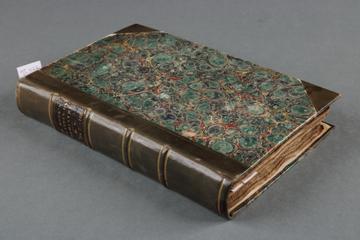
Hope, Thomas Charles 1766 - 1844
- Nationality:
- Scottish; British
(1766-1844), chemist
Thomas Charles Hope, born on the 21st July 1766, entered Edinburgh University in 1779 where he focused primarily on botany and chemistry. Hope graduated MD in 1787 and became a lecturer in chemistry and materia medica at Glasgow, continuing with just chemistry until 1791.
In 1791, Hope was appointed chair of medicine at Glasgow, a post he held until 1795. Hope continued to conduct private research in chemistry and in 1793 presented his paper on the first known compound of strontium (named after the place it was found - Strontian in Argyll). Joseph Black, impressed so much by this paper, appointed Hope as assistant professor in November 1795. Hope succeeded Black as professor in 1799.
At Edinburgh, Hope continued to lecture also on clinical medicine. In 1805, Hope published his discovery that water reaches its maximum density at 4°C. In 1813 he investigated the water supply of Edinburgh so thoroughly that in 1817 he was given the freedom of the city. Hope wrote the chemical part of the tenth edition of the Edinburgh Pharmacopoeia (1817).
After 1806, Hope wanted to focus on improving his teaching. Since he did not receive a salary for his teaching, Hope was wholly dependent on the fees paid by students. By 1820, he had reached immense popularity, with lectures attracting an audience of over 500 with fees of £2000 per annum. Numerous foreigners, from princes to ancient historians, were impressed by his chemical drama. In spring 1826 he reached the apex of his popularity when he gave a course to which women and their beaux were admitted; the fees from the audience of over 600 enabled him in 1828 to give £800 to found a university chemistry prize.
Up until 1823, Hope offered no opportunities for students to attempt practical chemistry. In 1833 attempts to found a chair of practical chemistry were vehemently opposed by Hope who wanted to maintain his professional monopoly. After this dispute Hope’s popularity dropped tremendously. Despite the dramatic reduction of his class sizes, Hope was by this point a wealthy bachelor and a leading figure in Edinburgh’s polite society. Hope died after a long illness on 13 June 1844 in his home in Edinburgh’s New Town.